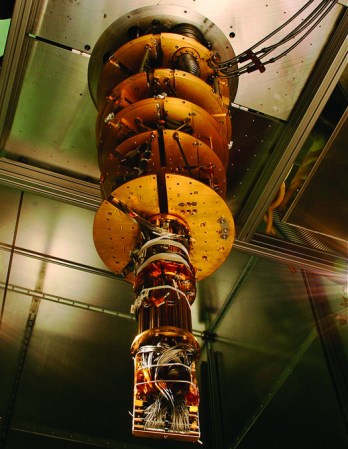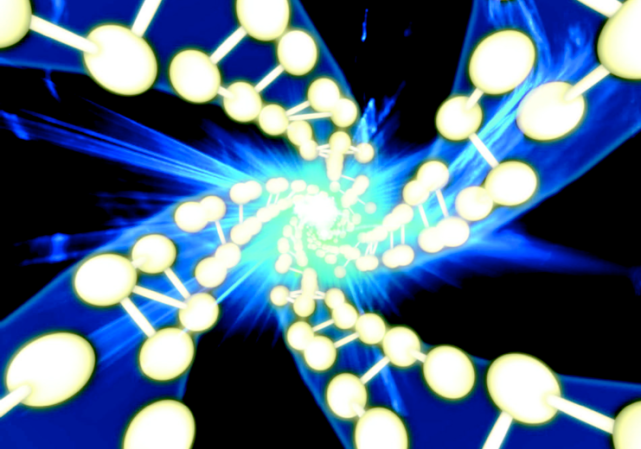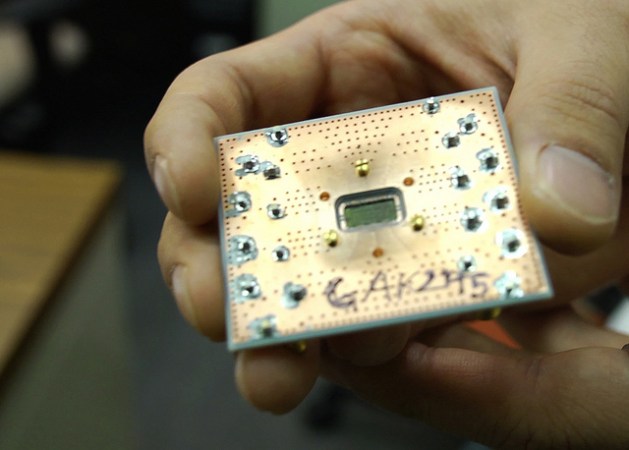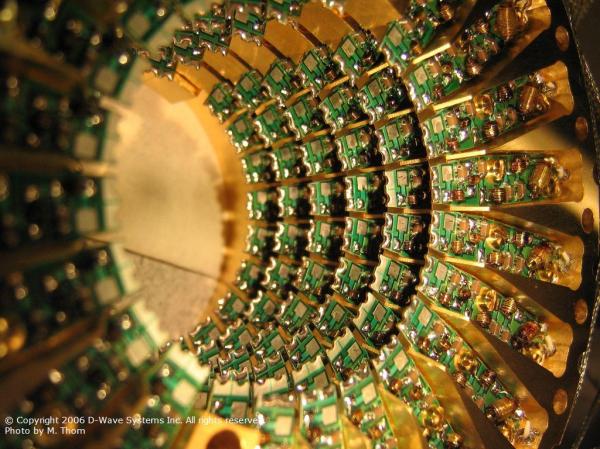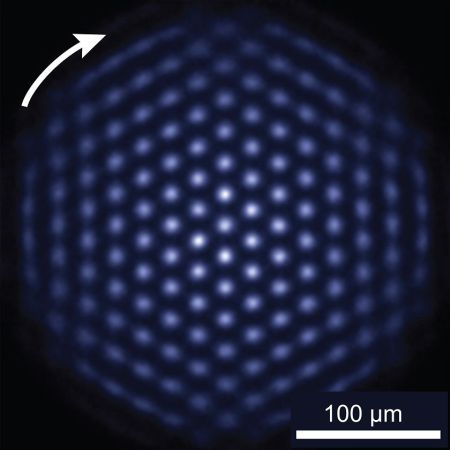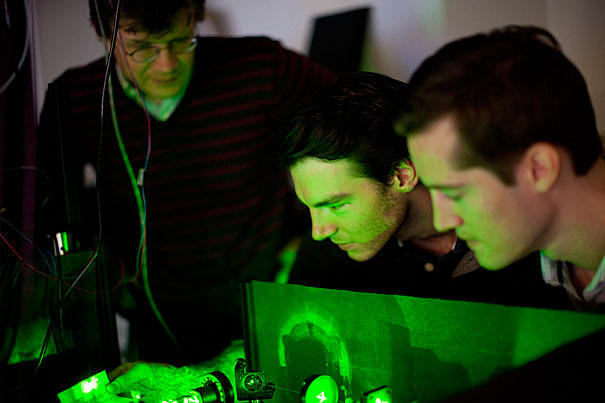

Seth Lloyd, director of the Center for Extreme Quantum Information Theory at MIT, answers some (very) big questions, about his beer keg superconductors and our quantum universe.
Seth Lloyd on Quantum Computers
Popular Science: How are quantum computers different from ordinary ones?
Seth Lloyd: Quantum computers operate at the smallest, most fundamental levels allowed by physics. On a regular computer, a single bit of information is represented by a whole bunch of electrons. In a quantum computer, you store bits of information on the most elementary particles. So a “qubit” might be represented by a single electron.
Why is a smaller bit better?
At the quantum-mechanical level, an electron can be here and there at the same time. And if you’re here and there, you can do this and that simultaneously.
PS:How is it different from regular computers with multiple processors?
On a regular computer, a bit can be 0 or 1. Electrons over there means 0; electrons over here means 1. On a quantum computer, a bit can be 0, 1 or both. So in your quantum computer, one qubit means two things at once, or with two qubits, four things at once, or three qubits, eight things at once.
How many qubits are there in today’s quantum computers?
We’re up to around a dozen — so we can solve complicated equations really fast. And if you have 300 qubits, you can do 2300 things at once, which happens to be the number of elementary particles in the universe. So you can do a lot.
How does the machine actually work?
If you control an electron, you can control the qubit. You flip the qubits by zapping them with microwaves or lasers. Those are things that we know how to do pretty well. That’s all that an ordinary computer does — move bits from place to place.
Do quantum computers look like regular computers?
No. Your typical quantum computer is more like a digital computer of the 1950s. The qubits can be stored in molecules, which sit inside a tiny test tube. But to zap the qubits, you need to pop the test tube between superconducting magnets. That’s inside a cryostat of liquid helium. It looks like a beer keg with a bunch of cables snaking out.
How do you do the zapping?
You give instructions on your ordinary computer. These get translated into a series of zaps by the microwave generator. Then you look at the weak microwaves given off by the molecules. Those are the results of your computation.
What if you don’t use your computer for solving linear equations? How about quantum Googling?
You mean Quoogle? We’ve played with this idea. You could search databases faster with complete security and anonymity. After Quoogle gives you the answer, you’re absolutely guaranteed that Quoogle cannot copy what the question is, because when you make a measurement on an unknown quantum state, you inevitably mess it up. The no-cloning theorem says that if you try to copy an unknown quantum state, (a) you can’t, and (b) you inevitably mess up the quantum state by trying. So you can’t copy the question.
This is private browsing on a new level.
Yeah, and actually I took the idea to Sergey Brin and Larry Page [of Google], and I said, “Hey dudes, we came up with this awesome idea for quantum Internet. How would you like to fund this or buy the company?” And they came back and said, “We’re really sorry, but our whole business plan is based on knowing everything about everybody. So this goes against our business plan.”
What are the biggest questions quantum computers could tackle?
Where the universe came from and where it’s going in the far distant future. We can try to answer these questions because the universe is a quantum computer. Think about it in terms of information instead of energy. It’s made of bits — elementary particles — and how they interact are operations. You can calculate how many bits are in the universe, how much energy it takes to flip them, how much energy exists, and use that to rule out lots of things about the universe’s history. Anything that takes more bit flips couldn’t have happened. That also means with enough bits you could make a quantum computer that would effectively be indistinguishable from the universe.
What would you ask a quantum computer universe-replica?
I’d ask it normal things I ask the universe — like, Why? But I still wouldn’t expect much of an answer.
